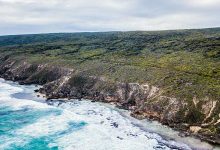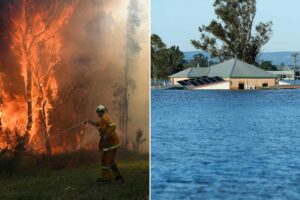The Western Australian Labor government wants to support new carbon farming projects in the state, launching a new ‘Carbon for Conservation’ initiative that will support emission reduction projects in the state’s national parks and reserves.
The initiative has been launched as part of the McGowan government’s Covid-19 stimulus plan, and it has released a request for tender for carbon farming projects that need support to develop business plans and identify high potential candidate sites in conservation areas.
The WA government sees the carbon abatement projects as a way to incentivise investment in conservation projects throughout the state, as well as underpinning private sector investment at a time when support for the state’s economy is needed.
“The McGowan Government is committed to working with all sectors of the economy to achieve net zero greenhouse gas emissions by 2050, as well as recover jobs lost during the pandemic,” WA environment minister Stephen Dawson said.
“Private sector investment in Carbon for Conservation has the potential to deliver benefits that go beyond carbon credits and enhanced social licence to operate.”
“The potential environmental benefits of Carbon for Conservation are wide ranging, with enhanced management of our national parks and reserves to increase carbon stores through improved native vegetation cover, revegetation, weed and feral herbivore control and other targeted measures,” Dawson added.
The WA government will provide support to projects that are eligible to create Australian Carbon Credit Units (ACCUs), under the federal government’s Emissions Reduction Fund initiative.
However, eligibility under the Emissions Reduction Fund is not a necessary requirement for the WA government’s support and it is unclear whether the WA government will offer to purchase carbon abatement directly from the projects that progress to development.
The projects will look to take advantage of the co-benefits of supporting conservation projects, incentivising the private sector to invest in improving outcomes in the state’s national parks, while also developing opportunities to cut the state’s greenhouse gas emissions.
The types of projects that may be supported by the carbon farming activities include revegetation projects, the removal of feral herbivores and pests, and proactive fire management.
The WA government will look to support the development of proposals for carbon abatement projects that benefit both biodiversity outcomes, while also working cooperatively with the state’s Aboriginal people.
The WA government has already identified seven candidate sites, in collaboration within carbon farming service providers, which will maximise carbon storage capacity, conservation benefits, as well as working collaboratively with local Aboriginal people traditional owners.
The identified sites include regions in the Karijini National Park, the Ord River region, the Ningaloo Coast, the region stretching between Shark Bay to Geraldton, Wanjarri Nature Reserve, Wheatbelt reserves and the Swan Coastal area.
“It has the potential to support on-country jobs for Aboriginal people, enhancing already successful partnerships with traditional owner groups and leveraging other initiatives such as the Aboriginal Ranger Program and Plan for Our Parks,” Dawson added.
“Importantly, Carbon for Conservation proposals will only proceed to practical delivery following consultation and support of traditional owners.”










